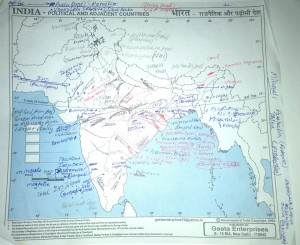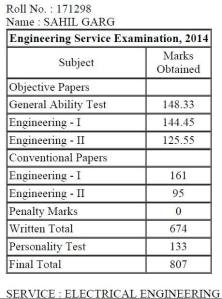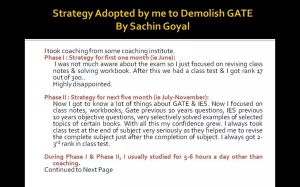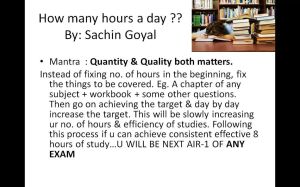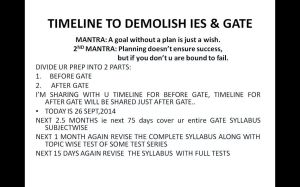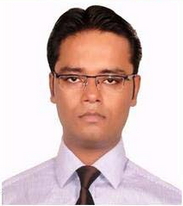UPSC Engineering Services Interview 2013 Board: Dr. (Mrs.) P. Kilemsungla
Date: 10th Jan, 2014 Candidate: Shubham Pandey (Mechanical Engineering) Result: AIR 18 with 148/200 in Interview
Brief Profile:
I, Shubham Pandey, born and brought up in Kanpur, completed my Graduation from Indian Schoolof Mines, Dhanbad in 2011 as a Bachelor of Technology in Mechanical Engineering. After the college, I joined Tata Motors, small car division (Nano Plant) at Sanand, Ahmedabad. I worked for an year before started preparing for Engineering Services Examination. I qualified GATE 2013 with AIR 181 and joined Bharat Heavy Electricals Limited (BHEL) in the CS & IT Department at Corporate Office, New-Delhi in the month of November, 2013. As per my Detailed Application Form, My hobbies and interest include Surfing about Computer Applications and E-Services, Playing and watching Football, Compering in Events, Child Education Programme & Blood Donation.
Engineering Services 2013 interviews for Mechanical Engineering candidates started on 6th Jan 2014
and I had mine on 10th Jan in the forenoon session. I was the 2nd candidate of the day to be
interviewed by the panel. Panel chairperson was Dr. (Mrs.) P. Kilemsungla. Panel comprised of
Chairperson and 3 advisors.
I greeted all the panel members as I entered in the chamber. The chairperson (Dr. (Mrs.) P.
Kilemsungla, hereinafter referred as ‘Ma’am’ ) wished me back and asked to have a seat. She was
going through my summary sheet while asking questions at the same time.
Ma’am: Shubham, I see in your profile that your interest lies in Computer Science field then why did
you opt for Mechanical Engineering in your Bachelors?
Me: Ma’am, when I did my +2, I had my interest in Computer Science field and I was very much
willing to pursue my career in the same field but I could not score a good enough rank to get
Computer Science Engineering in the leading technical institutions in the country. Physics had been
my favourite subject in +2 so the second choice was Mechanical Engineering. Since I have been
through the subjects, I have been in love with it.
Ma’am: So, you are working in BHEL. Tell me something about your job profile.
Me: Ma’am, I joined BHEL in last November only and it has been only a couple of months into my
training. I am posted in CS & IT Department in B HEL and have been learning about the IT Network
Security policies and guidelines, procurement methodology of IT assets.
Ma’am: Since you are a Mechanical Engineer, how are you coping with IT in BHEL?
Me: Ma’am, wherever you go, there is something new to learn. It’s just one has to be ready all the
time and accept the challenge. I am lucky to have been posted in IT Department as it will give me an
exposure to a new field. Also, I have had my interest in this field in the past so it is like a second
chance I have got to pursue my dream. This experience will add up in my profile and will definitely
help me in shaping up my career.
Ma’am: I see you are a Footballer. Tell me what values in your character you gained from the sport
Football?
Me: Ma’am, Football is a team game so the most important thing I learnt is how to work as a team.
It’s not the goal of an individual that is important but that of the team is what matters. The potential
of every individual of the team should be realised and he should be allowed to play his roles
accordingly. If I am going to score a goal and I see a team-mate of mine in a better position to score
the goal, then I should pass on the ball to him rather than keep it to myself and weaken the chance
of scoring the goal. Thus it also made me learn to make sacrifices for the greater good.
(I should have stretched it further with points like Fighting Spirit, Sportsmanship etc. but it was the
effect of the chamber that I couldn’t think of all these at that point. And trust me, it happens.
Whatever came to my mind, I uttered though realised it later that I could have done much better)
Ma’am: You graduated from Indian School of Mines, Dhanbad. Have you heard about mines fire over
there? When you joined college, were you given any sort of special instructions regarding the same?
What is its impact on the environment?
Me: Ma’am, my college was at some distant approx. 15-20 KMs from the mining area so it was not
much of a problem for us so no such special instructions were given at that time. I have been to that
area and have witnessed the density of the coal particles suddenly going really high compared to the
main city as you enter in that zone. All the times, there is smoke coming out of the ground that
causes poor visibility even in the broad daylight. At times, it’s difficult for the people living nearby to
even breathe properly. It has caused many life threatening diseases to them. Environmentalists are
protesting against the same but no action has been taken for years.
Ma’am: Shubham, you have been involved in a Child Education Programme. Tell us something about
it. What values did you try to impart on the children?
Me: Ma’am, There is an NGO named Kartavya, operating in the slums nearby our college hostel. It
gave free tuitions to needy children, helped them financially for their books, education fee and other
needs. I was associated with the same and was spreading computer awareness among the enlisted
children. My role was to make them see the new dimensions of this computer era. When we were of
their age, we didn’t even know about computers and now days, it has been an inseparable part of
our daily life. So I made them understand its basic usage of it with its practical aspects.
I tried to give them the vision of the future world exploiting the benefits of technology and the
possible roles they can play that can benefit the society.
Ma’am: I am asking about the values you transferred to the children.
Me: (I could not think of a proper answer to this question, perhaps I was too nervous to think. I took
a pause and then replied to her) Ma’am, as I am a part of this child education program while also
doing my bachelors, children see this things as an inspiration to do something for the society. This
way, we taught them a sense of responsibility for the society to perform their duties when they
come to age.
(I still can’t believe how I could not think of honesty, patriotism, brotherhood kind of stuff, may be it
was the chamber effect once again)
Ma’am: So you are saying you are posing as an ideal for them?
Me: No Ma’am, that’s not what I intend to but if this value is getting transferred automatically, I am
happy to be a part of it.
[Ma’am then asked the other panel member to take over (referred as ‘M1’ hereinafter)]
M1: So Shubham (looking towards my summary sheet), you have mentioned that your hobby is
Surfing about computer applications and E-Services. Tell me what is this ‘core’ thing? You must have
heard of dual core, quad core and octa core machines. What does the term core refer to?
Me: Sir, Cores are the parallel data pipelines inside the processor. These are used to increase the
speed of processing. More the number of cores better will be the clock speed.
M1: Is it the speed only that gets benefited from increasing the number of cores or there is
something else as well?
Me: Sir, I have heard about speed only.
M1: Have you heard of redundancy?
Me: No Sir, I don’t know about it.
M1: Okay, so I see you are working with BHEL in the field of data security. Tell me, how does this
data get leaked from our system? Until we know where the loophole is, we won’t be able to plug it.
Earlier we used digital form of data for communication but it was very easily compromised so we
started using fibre optics where data is transmitted in form of light signals that is more secure.
Despite of all these measures, you tell me how hackers get into our data?
(He took entire minute or two to make me understand what he’s trying to ask. Actually the panel
was very co-operative, tried to make me comfortable every now and then with questions and
otherwise as well but still, it was a tough job to hold your nerves for half an hour.)
Me: Sir, whatever our confidential data is, we use some sort of encryption before transmitting it and
if the hacker is smart enough to decrypt it, he gets access to all the information. So the security of
data entirely depends upon how good our encryption is.
M1: So what are the types of encryption we use now days?
Me: Sir, I have heard of a few protocols for encryption like WEP, WEP-2 but I don’t know much about
it.
(WEP is actually the Wireless Encryption Protocol that I recalled from one instance when I was trying
to set up my Wi-Fi network. Such recollections can be life saviour at times)
M1: Okay, since you don’t know much about it, let’s move ahead. You tell me how do you plan to
use your hobby in your office? How do you propose to use technology at your workplace?
Me: Sir, I’ll try to put up a ‘ Paperless Office’ in place where all the documents will be in digital form
instead of hard paper. The documents can be sent through mail very quickly compared to the postal
delays in case of hard copy. If one needs to sign a document, he can go for digital signature of even
use a light pen to mark the signature on the digital document. This will greatly improve the efficiency
of the system. Also, Going Green this way can help us in saving a number of trees thus saving the
environment.
M1: Suppose you are in Railways and you have to accept some payment from a vendor/customer,
how would you set up a process of E-Payment?
Me: Sir, there are payment modes made available by banks on RBI guidelines like NEFT and RTGS.
One can use these methods for making the payment. Also, these days, many payment gateways are
there like BilDesk, Pay U, PayZippy, and PayPal etc. We can contact any of these payment gateways
to provide the service of E-Payment. These gateways can collect the payment from the customer
through any debit/credit card or net banking mode and deposit the same into our account. They
take a nominal processing charge for the same. These transactions are secure and efficient.
M1: Okay, what if a customer claims that he has made a payment but it doesn’ t turn up into our
account books? What if the customer lies about making a payment? What are the cross-checks put
to stop fraudulent activities?
Me: Sir, whenever a person makes any payment over internet through any payment gateway, it
always takes place over a secured connection in which an extra layer of security is added. His IP
address, Browser etc. details are noted down which can be cross checked against those claimed by
the customer. Also, the online payment has to be from some account be it a credit/debit card or net
banking account, in case of a dispute, the account statement can be verified against the claim of the
customer.
M1: I see you have worked for Tata Motors for about a year. Today morning itself I was reading an
article in the newspaper that the auto sales have plunged to a decade low level. Why do you think
there is such a low sales volume in auto industry and what is Tata Motors doing for it?
Me: Sir, it has been a tough year for most of the industry sector and auto industry is no different to
it. Major economies like USA & China are facing tough times for revival. Infrastructure development,
steel industry everything is on a downside. Besides these, increasing inflation and fuel prices have all
put a lot of impact in the sales volume.
Market is growing extremely competitive for Tata Motors with the profit margin going down. They
are running an extensive ad campaign and are trying to woo its customers by providing attractive
vehicle finance schemes, giving freebies with the vehicle simultaneously doing a lot of Value
Engineering on the vehicles to bring the cost down.
M1: Don’t you think this reduction of auto sales can be attributed to the growing fond of shared
transport systems?
Me: Sir, if you talk about metro cities say Delhi, here the shared transport systems like Delhi Metro
has really made an impact on the auto sales giving quality services in a time bound manner. Growing
traffic leading to delays has made people think about opting out of their own vehicle and turn
towards such shared transport systems. But once you move away from these metro cities, there, the
state of shared transport is still not very good so people are relying on their own vehicles. I don’ t see
the shared transport systems making a significant impact on auto sales in such cities.
M1: I see you graduated from Indian School of Mines. Did you learn anything about mines?
Me: No Sir, we didn’t have any course relating to mines in our curriculum so I don’ t know much
about it. There were separate streams like Mining/Mining Machinery/ Mineral Engineering dealing
with the courses on mines.
(M1 then asked M2 to take over)
M2: What is this you have written BNSDSNIC Kanpur as your school? What is its full form?
Me: Sir, BNSDSNIC stands for Bishambhar Nath Sanatan Dharm Shiksha Niketan Inter College.
M2: I see you worked for Tata Motors till July 2012 and then joined BHEL in November 2013. What
were you doing in between?
Me: Sir, I was preparing for PSUs and Engineering Services Examination.
M2: When you resigned, who was the chairman of the Tata Group?
Me: Sir, it was Mr. Ratan Tata but he was working on passing the baton to Mr. Cyrus Mistry.
M2: Do you know who the Sr. Vice President HR of Tata Motors is?
Me: (Taking a pause) Sir, I recall his face but at this point I am not able to recall his name.
M2: It’s okay if you don’ t recall.
(Talking to Ma’am, explaining his anxiety behind asking this question, He said that he read
somewhere that the Sr. V.P. H.R. of Tata Motors is a very humble, down to earth person. At his level,
you don’t expect someone to enquire about the conditions on the grass root level all by yourself
but he himself visited the Pune plant and asked everybody to keep his visit a secret so as to take a
look of what actually are the problems at the shop floor so he was anxious to know if I know his
name)
M2: You have graduated from ISM, Dhanbad. You must have heard about the issue of illegal coal
mining in that area. How do you think that these coal mafias are operating at such a level?
Me: Sir, this illegal coal mining industry has been operating for quite long and with time, it has
grown big with size and wallet. Had it been a one time or five times or even ten times affair, I would
have taken it for a mistake but Indian Police is such a big organisation that it is hard for me to believe
that this sort of illegal activities going on at this level for such a long time would have gone
unnoticed. In my opinion, to operate at such a level, there must be some understanding between
the mafias and the officials in the background.
M2: That will be all from my side.
(M2 then asked M3 to take over)
M3: What are the conditions in which a player is shown a red card in a football match?
Me: Sir, Red cards are awarded to a player when he acts against the spirit of sport in the football
ground. That may include deliberately trying to cause an injury to a rival player, not obeying to the
match referee; even two yellow cards will get converted into Red Card.
M3: Okay, you have written Blood Donation as your interest. How much blood does 1 unit of blood
contain?
Me: Sir, it depends on country to country and person to person. The standard 1 unit of blood is
equal to 1 US Pint i.e. approx. 450 ml of blood. From females, generally 350 ml of blood is drawn in
one go.
M3: And how frequently can one donate blood?
Me: Sir, in case of whole blood donation, the duration between 2 blood donations has to be 3
months at least, But there are some new techniques in play like Apheresis, where one can donate
again even after 48 Hours. This is very popular in case of Platelets donation where blood is drawn
from one hand, processed in machine, required part is collected in a bag and the rest of the part
been pumped back into the body through the other hand or through the same hand at an interval.
(M3 then asked Ma’am that he is done with me, Ma’am took over again)
Ma’am: Shubham, I see you have mentioned compering in events in your interests. This is something
unique I have seen. Tell me something about it? What should be the qualities of a good compere?
Me: Ma’am, I had my education from a Hindi medium school. I always took college as a platform not
only to excel my technical skills but also extra-curricular skills and getting equally proficient in English
was a herculean task for me. Initially I was afraid; I even saw English movies dubbed in Hindi, at
times feeling shameful for it. Then I gathered some courage, started building my vocabulary, and
watched lots n lots of English movies and serials, firstly with sub-titles, eventually understanding the
accent. I asked my seniors to help me with this and they put their confidence in me and gave me the
opportunity to face the crowd, they asked me to host an event. And that is where it began. I have
never looked back ever since.
A Compere’s most important quality is how well he can keep the crowd connected to the program.
He should be entertaining with the talent of making even a dull event into a lively one. Interacting
with the audience, taking their response every now and then, his readiness to the unexpected
responses and situations, all these things make a Compere worth watching for.
Ma’am: How about the script of the program? Isn’t it important for the compere?
Me: Ma’am, the script should always be in the back of the head of compere but keeping the crowd
entertained and connected to the program is also necessary for him to be the star of the show.
Ma’am: (with a gentle laugh) the entertainment part is also important, right. Okay, Shubham. That
will be all. It was nice talking to you. You may go now.
Me: Thank you Ma’am, Thank you Sir!!!
Post Interview Thought:
My interview went smoothly with only one or two hiccups in between. I was surprised for not being
asked any technical question at all pertaining to my Mechanical Engineering background. I was
expecting around 120 marks but this year UPSC was very generous towards Mechanical Engineering
Students. I got 148
These interview marks were of really high importance in taking me to AIR 18 as only 2 of the
candidates had scored less than 500 marks out of 1000 in the written papers that ended up in top
25. I was one of those two guys.
Hope my experience will help you. All the best!!
Shubham Pandey
ESE 2013 AIR 18
Mechanical Engineer
